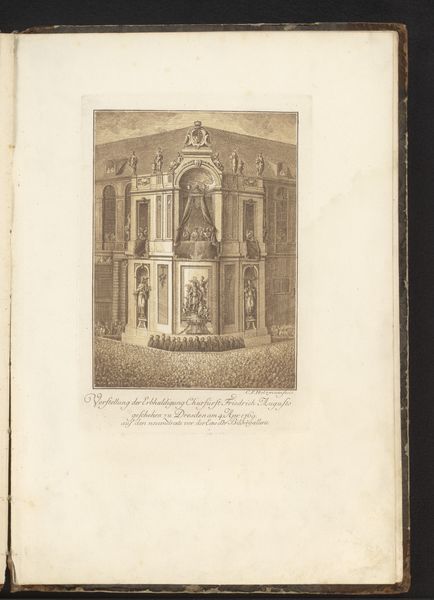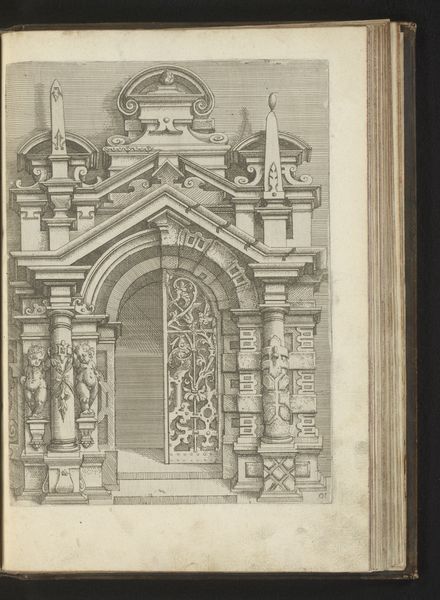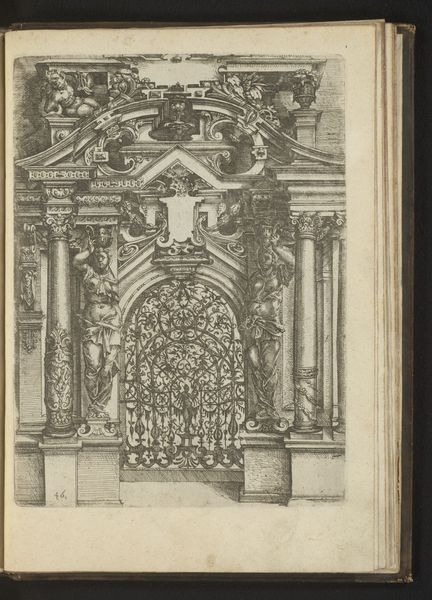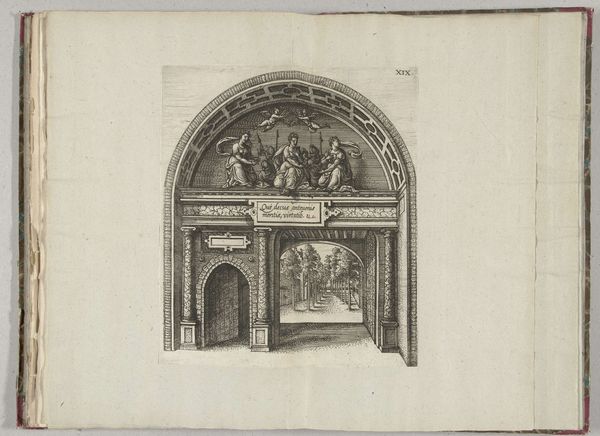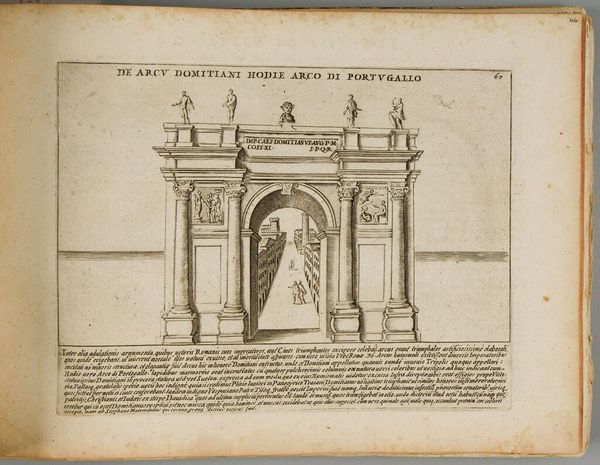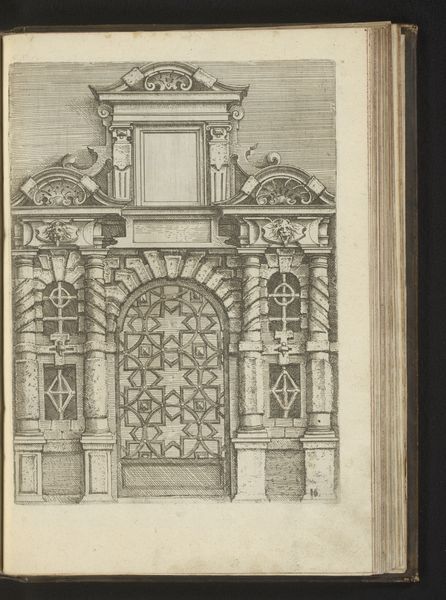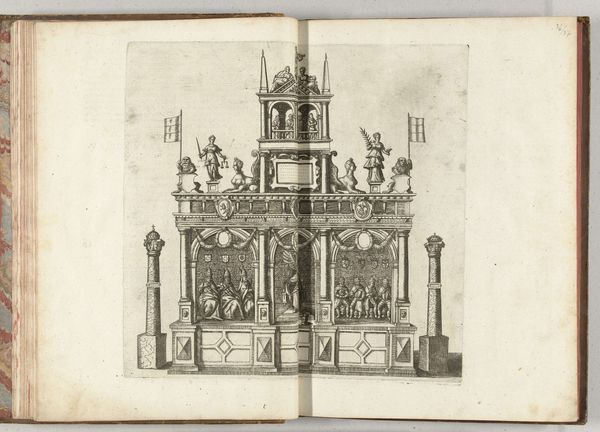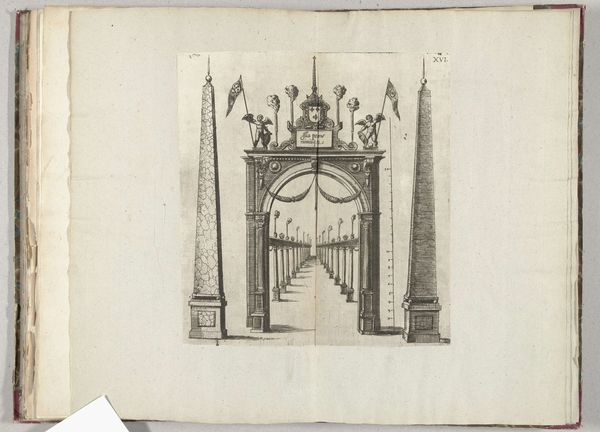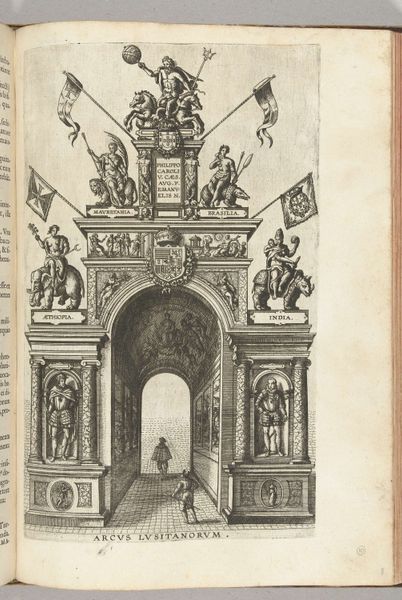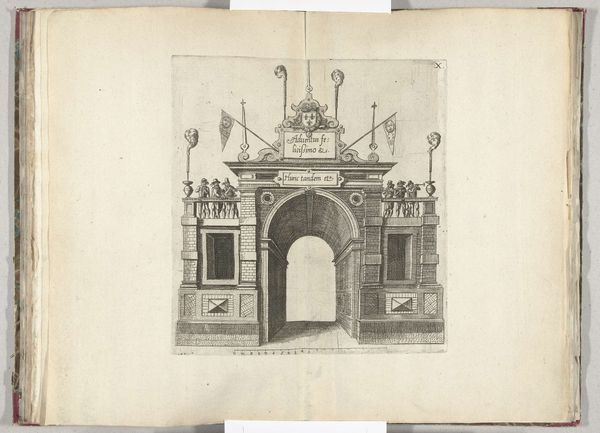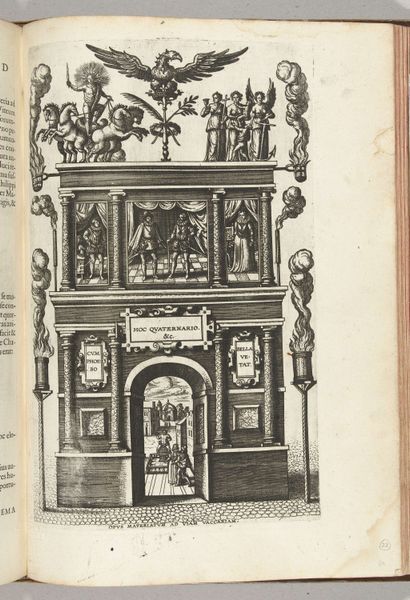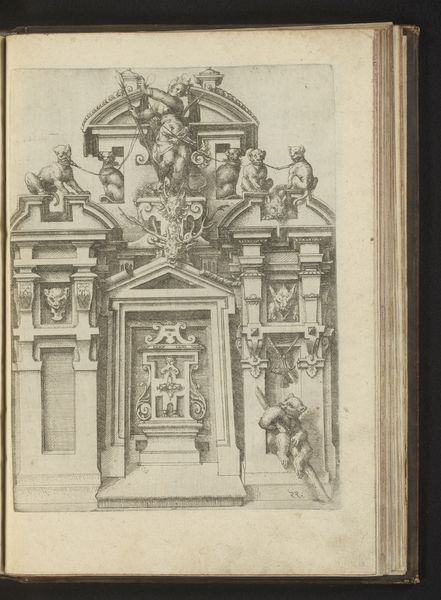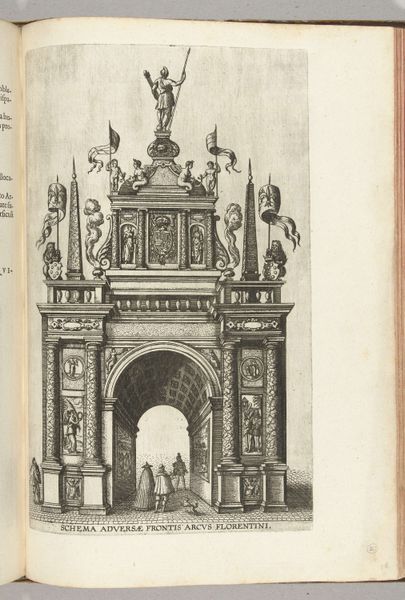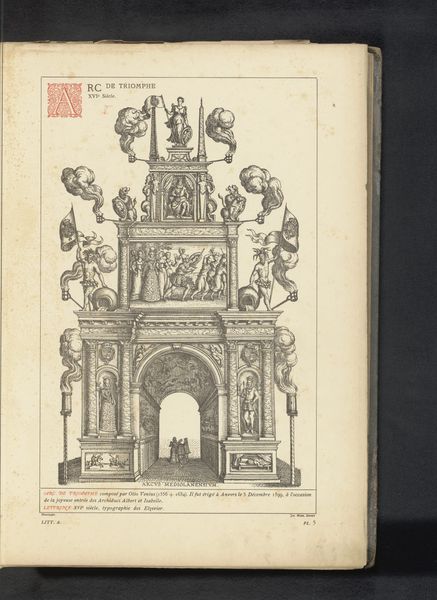
drawing, print, engraving, architecture
#
drawing
#
aged paper
#
toned paper
#
light pencil work
#
baroque
# print
#
pencil sketch
#
old engraving style
#
sketch book
#
landscape
#
personal sketchbook
#
pen-ink sketch
#
pen and pencil
#
sketchbook drawing
#
engraving
#
architecture
Dimensions: height 173 mm, width 205 mm
Copyright: Rijks Museum: Open Domain
This print of a garden house in the Versailles palace labyrinth was made in 1726 by an anonymous artist, using etching and engraving. These processes involve coating a metal plate with wax, then scratching an image into the wax. Acid is then applied, biting into the exposed metal, and finally ink is applied to create the print. The precision of the engraving captures the formal and decorative elements of the garden house, with fine lines used to depict the hedges, architectural details, and sculptures. Prints like this one played an important role in disseminating images of Versailles. They offered a glimpse into the opulent lifestyle of the French aristocracy, fueling both admiration and resentment among the wider population. The production of such prints involved skilled labor, from the artist to the printmakers, highlighting the interconnectedness of art, craft, and social class. By focusing on the materials and techniques used to create this print, we gain a deeper understanding of its historical and cultural significance.
Comments
No comments
Be the first to comment and join the conversation on the ultimate creative platform.
